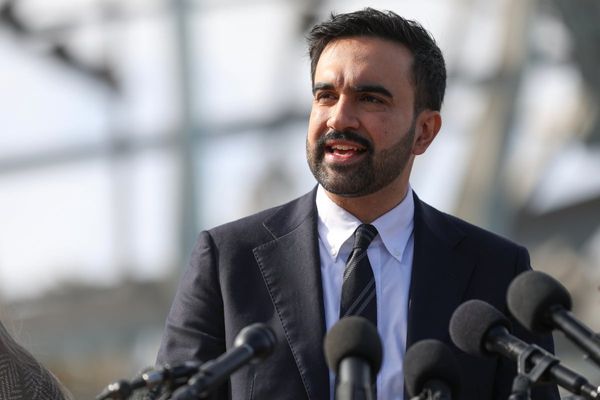
Four out of five teenagers say their academic progress has suffered as a result of the pandemic, with state school pupils twice as likely to feel they have fallen behind than their peers in private schools, according to initial findings from a landmark study.
Half of the 16- and 17-year-olds questioned said the Covid disruption had left them less motivated to study, while 45% felt they have not been able to catch up with lost learning.
Two-thirds (64%), meanwhile, said their education plans had changed as a result of the pandemic, hinting at the long-term consequences for those who had long Covid, or ill health requiring them to shield, who were more likely to have changed their plans.
The findings prompted the lead investigator behind the study, which is tracking the experiences of 13,000 pupils in England through the pandemic and beyond, to warn that the education disruption caused by Covid has “severely” widened existing inequalities. He also said its effects would continue to cast a long shadow.
The Covid Social Mobility and Opportunities Study (Cosmo) is the largest of its kind looking into the impact of the pandemic on young people’s life chances, and focuses on those in Year 10 when the pandemic first struck in 2020, resulting in their GCSEs being cancelled in 2021. They will sit their A-levels in summer 2023.
The study, led jointly by University College London and the Sutton Trust, is also trying to establish how much tutoring and catchup education its participants have accessed. According to this first set of results, a large majority of the cohort did not access the subsidised tutoring made available to schools by the government’s national tutoring programme (NTP), while almost half said they had accessed no catchup learning.
The findings, published on Thursday, also point to a gap between the experiences of those in state and private schools – more than a third (37%) of state school pupils felt they had fallen behind their classmates, compared with just 15% in the independent sector. That may be explained in part by the fact that 96% of independent school pupils had live online lessons in the first lockdown, compared with 65% of state school pupils.
Similarly, 41% of Year 11 pupils in state schools reported being offered some type of tutoring, with 27% taking it up, while 52% of students in independent schools were offered tuition by their school. The results also exposed regional differences, with access to a device for online learning and live online lessons significantly higher in London and the south of England than in the north and Midlands.
The principal investigator, Dr Jake Anders, who is associate professor and deputy director of the UCL Centre for Education Policy and Equalising Opportunities (CEPEO), said: “Cosmo is providing vital new evidence on the effects of the pandemic on the lives of young people, with strong signs that it has severely widened existing inequalities – this has not been fully addressed by our policy response.
“And these short-term effects are just the start. We aim to continue following the lives of this cohort over the coming years. Whether or not we think of the pandemic as over, its effects will continue to cast a long shadow, and Cosmo will help us to understand this in the years to come.”
The shadow education secretary, Bridget Phillipson, said the educational divide revealed between state and private school pupils was shocking. “Ministers must take strong action now to stop permanent damage being done to our children’s education and wellbeing.”
Dr Mary Bousted, joint general secretary of the National Education Union, said the report laid bare the inadequacy of the government’s response to the pandemic. “Whether it was the slow rollout of laptops or the failure to heed warnings on increased safety measures for schools, this was a catalogue of errors.”
Sir Peter Lampl, chair of the Sutton Trust and the Education Endowment Foundation, said catchup funding in England (currently £4.9bn) was less than a third of what s required and was at a level three times lower per person than in the US. “The government’s education recovery plan must be much more ambitious, or we will blight the life chances of a whole generation.”
A Department for Education spokesperson said: “We know the pandemic has had an impact on children’s and young people’s learning, which is why our ambitious recovery plan continues to roll out across the country, with nearly £5bn invested in high-quality tutoring, world-class training for teachers and early years practitioners and additional funding for schools.
“Schools should continue to work with parents to make them aware of support on offer, including through the national tutoring programme, which is supporting children from all backgrounds to catch up on lost learning and has started over 2m courses so far.”
--
‘I have lost out’

Callum, aged 17, from Birmingham, had just suffered a family bereavement when schools were closed by the first lockdown in March 2020. He did not have access to online learning for some months and has not had any catchup tuition from the government’s ational tutoring programme.
There was a lot of chaos in my life at the time and then we went into lockdown quite unprepared. There was a lot of confusion about schooling. I didn’t really have access to technology. I didn’t have online lessons, things like that. There was work that went on every week, but I couldn’t access it because I didn’t have the internet. I remember talking to one of my friends and they were like, ‘Oh have you seen the work that’s been put for English’, and I was like, ‘We have work?’
It was only in the September when we came back I finally got more support. I got a laptop and I got better access. A lot of people in my school had issues like me. A lot of people didn’t have technology or they didn’t have structured lessons, so we’ve had a lot to try to catch up on. A lot of the lessons have been quite content-heavy because it felt like we were trying to do two years in one, so that was quite stressful. And I felt like I had to work harder to do my GCSEs. I felt I had to do more to recover to my peers’ level.
Originally I felt anger. I felt there was so much more that could have been done. It’s kind of subsided now and looking back, my school did do a lot, and they can’t help what they didn’t know. And to some extent I should have told them [about the lack of technology]. At the same time I do feel like I have lost out. I feel like I could have had a lot more support. I don’t blame anyone in particular. It was just quite an isolating time.
I still feel a sort of annoyance. I know how much work I had to put in to get back to that level. Whereas for some people, all these things were just readily available. And as much as I can respect every person who tried for their GCSEs, it’s felt like I’ve had to do so much more to be at the same level.
I’m quite proud of myself for how far I’ve gone. I got five 9s, three 8s and one 5 at GCSE. I’m doing maths, further maths and English A-level and I’m looking to apply to study in the US after. I know that I just need to keep on working, to try my hardest.”







